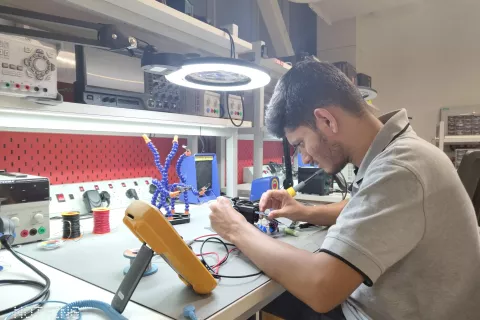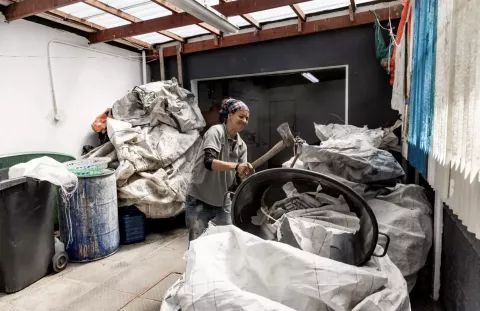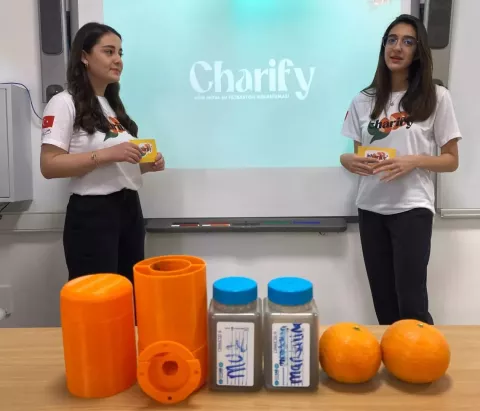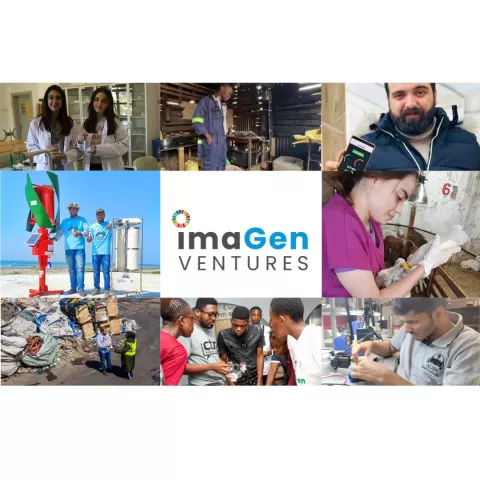Young people in Egypt spread COVID information to help keep communities safe
Young people in Egypt mobilize to safeguard the health of their community in the face of COVID-19
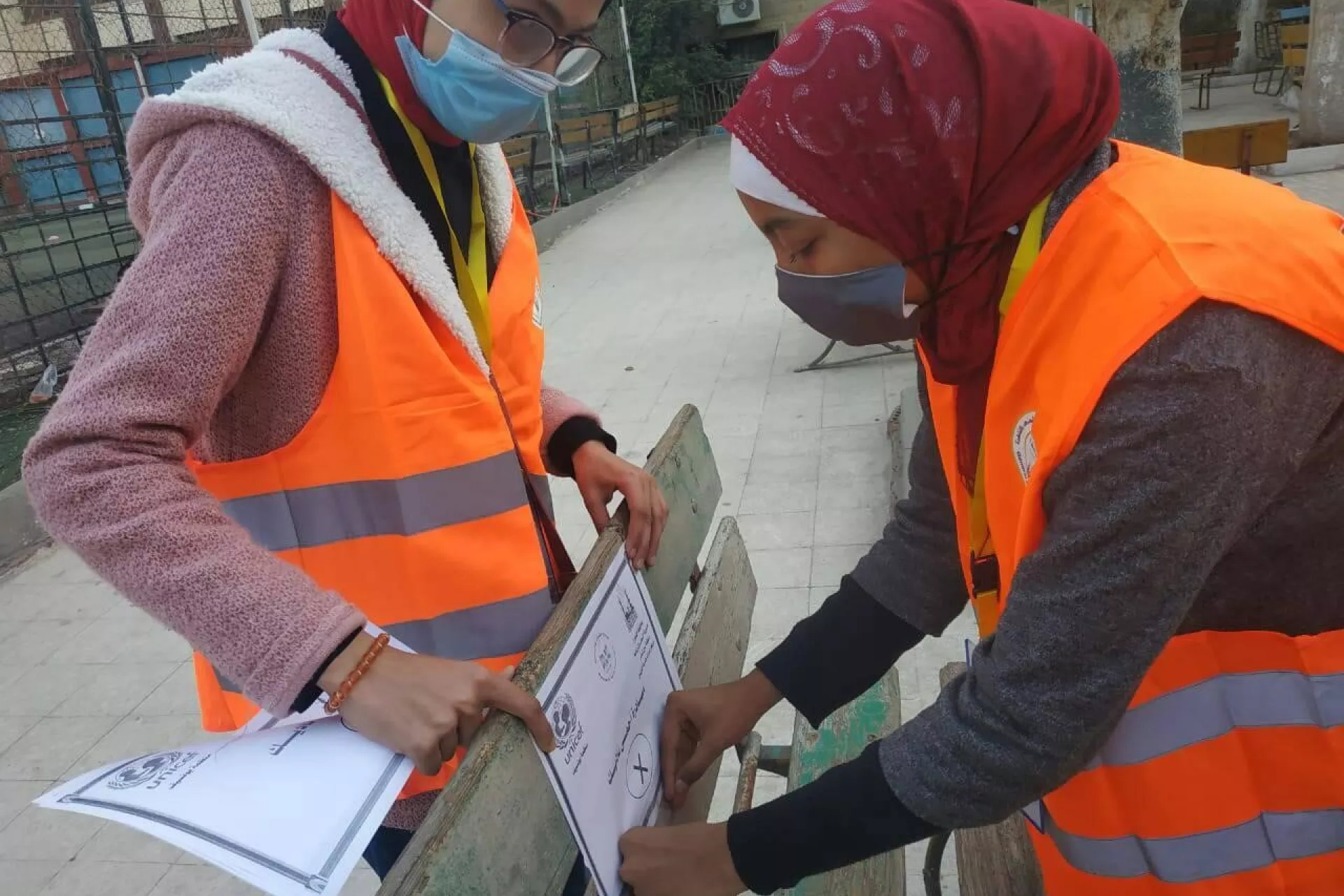
Egypt has one of the largest youth populations in the Middle East and North Africa. Like their regional counterparts, Egyptian youth face numerous issues. One way of ensuring that youth are not marginalized as a result of the challenges they face is to actively engage them in their communities. That’s why UNICEF focuses on providing development opportunities to young people, through leadership, engagement, capacity development, and mentoring. Most recently this has involved engaging young people in spreading COVID information to help communities stay safe as the pandemic continues to unfold around the world.
Leveraging strong partnerships with the Ministry of Youth and Sports (MoYS) and the Ministry of Education and Technical Education (MoETE), UNICEF Egypt, with the support of GenU and the Arab Council for Childhood and Development (ACCD), integrated young people’s active participation and engagement into two existing programmes. These programmes are the Adolescents and Youth (A&Y) Parliaments and the Student Unions.
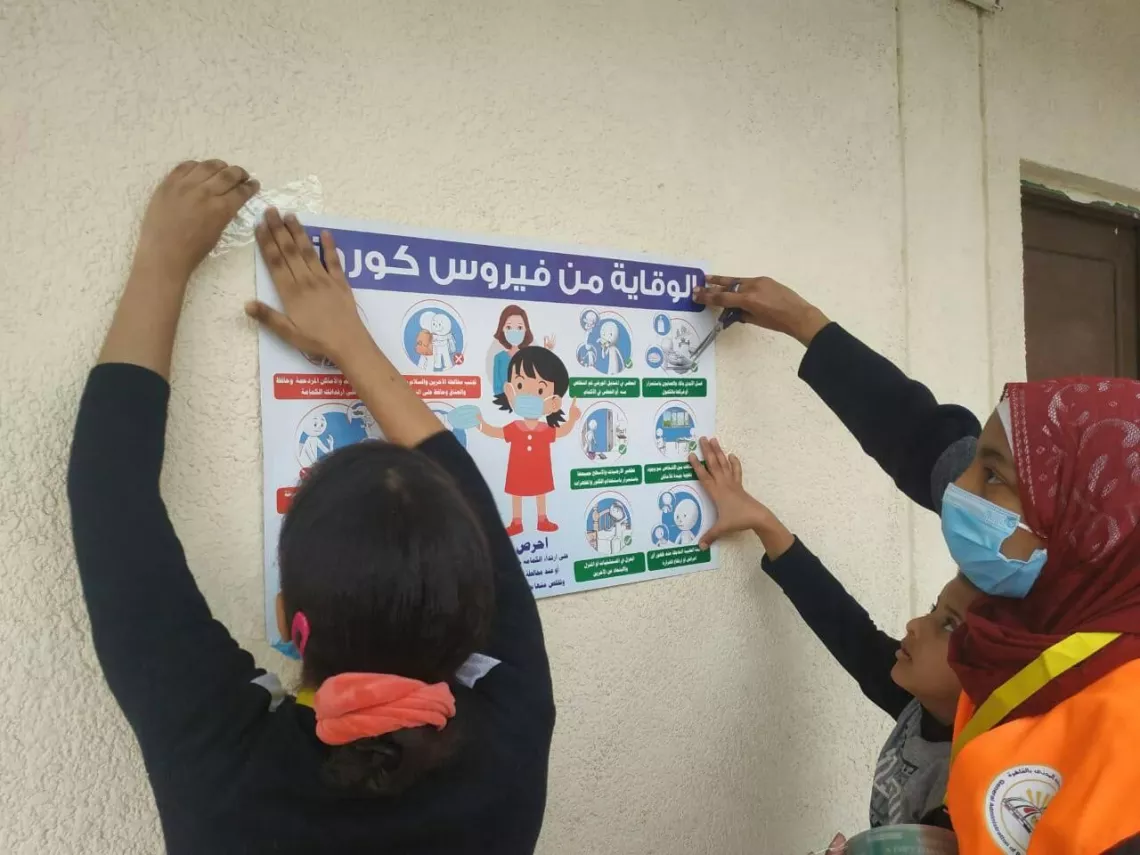
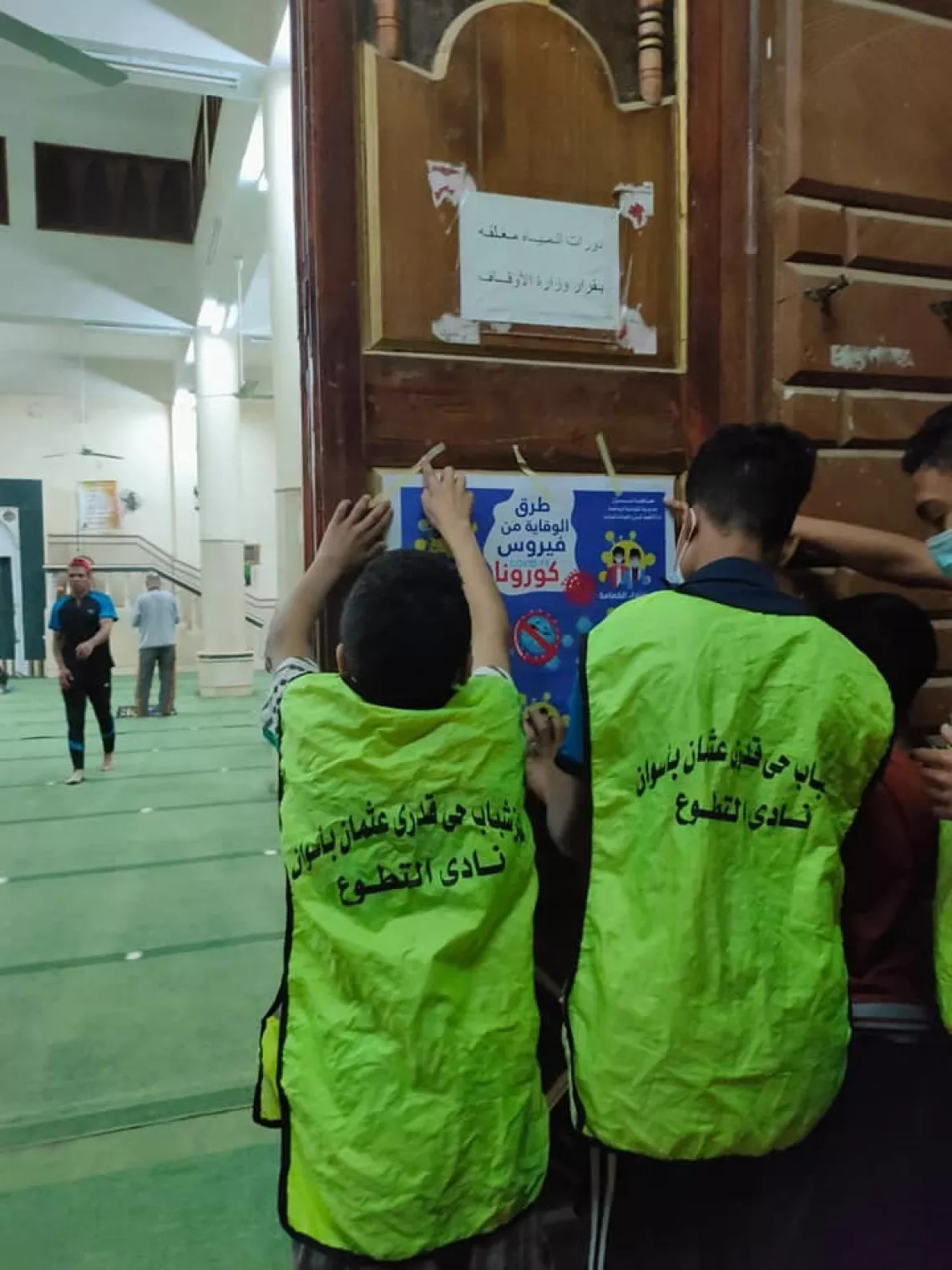
In alignment with UNICEF guidelines on A&Y engagement in response to COVID-19, the programme focused on elements such as informing and educating as well as engaging and taking action. The activities ensured that the A&Y participants in the COVID-19 response, know where to access safe, trusted and reliable information and services. A wide range of communication means were adopted including awareness-raising posters, communication with people in the street, health units, schools, as well as social media platforms.
Implemented during the first half of 2021 through both online and offline modalities, the programme trained a total of 81 trainers on participation and health-related messages with a focus on COVID-19. The trainers cascaded the training programme to a total of 2,336 A&Y (13–24 years of age) in five governorates representing upper, lower and urban governorates. As a result, the A&Y participants enhanced community awareness on COVID-19, social distancing, and personal hygiene. Around 14,500 adolescents participated in the programme reached more than 70,000 community members. They addressed different issues including the psychological and economic impacts of COVID-19. This intervention was highly appreciated by the MoYS, which requested further support to promote young people’s active engagement.

